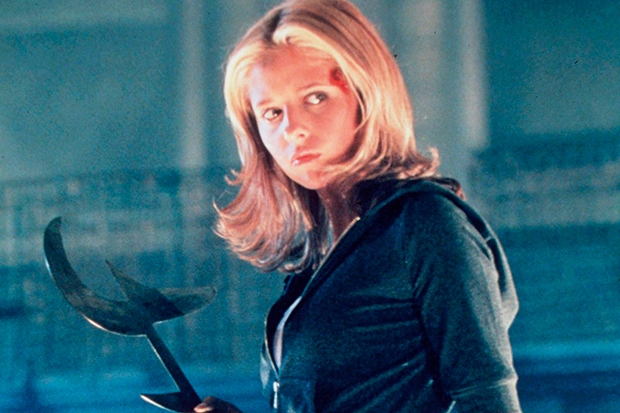When I moved to Manchester from London a few years back, I hummed and hawed over what to do with my VHS collection of Buffy the Vampire Slayer. With seven series and a total of 144 episodes, carting them more than 200 miles north was no small undertaking. In the end, I took them with me.
Fast forward to 2013 and I’m at the local animal charity shop with said collection. The advent of Sky On Demand had negated my need for a roomful of Buffy videos. I was sad to see them go but glad of the extra space in my house.
Now I discover that pristine copies of cult VHS tapes are worth a few bob. Admittedly, I never owned Frankenstein’s Castle of Freaks (widely considered to be the most valuable VHS in the world) or The Beast in Heat (£1,200 to the right buyer) but, like many children of the 80s, I’ve amassed a sizeable stash of clunky cassettes. eBay beckons.
New research reveals that there may be an audience for the interests of my youth. A study by Lloyds Private Banking shows that investors are increasingly driven to invest in their hobbies and pastimes. In fact, one in six investors holds collectible investments in their portfolios.
Meanwhile, Lloyds’s research also shows that investors are willing to part with large sums of money for things they love and have no intention of selling on. On average, £13,500 is spent on a single investment, with one in ten spending more than £50,000 on an individual item.
While jewellery is the most popular collectible asset, classic cars came out on top as the most expensive at an average of £34,500 per investment. This is followed closely by antiques (£32,500) and whisky (£27,700), which was revealed as a more expensive choice than fine wine (£20,300). Out of the 11 asset classes surveyed, racehorses attracted the lowest level of investment (£15,000).

However, investors who don’t have a spare £20,000 to spend on a stamp are finding that investing in their hobby doesn’t have to break the bank. One in four people spend less than £1,000 on hobby investments, demonstrating that there needn’t be a high cost barrier to a diversified portfolio.
This rings a bell. When I younger (and poorer), I shelled out £125 for a first edition of Keats’s letters (not from the early 19th century you understand – a later, early 20th century American publication of the great poet’s work). At the time, this was a considerable sum (and still is if you consider that I now buy most of my books at a discounted online rate). My friends thought I was mad. But it’s one of the best purchases I ever made.
I wonder if my Keats has gone up in value? Although, to borrow a popular refrain from Antiques Roadshow, I’d ‘never sell’. Lloyds Bank says that investing in pastimes can be a highly profitable investment option. Over the past decade, classic cars have seen increases of nearly 500 per cent, while rare whisky has risen by 350 per cent since 2008, followed by stamps (295 per cent) and coins (270 per cent).
Needless to say, not all investors achieve these staggering returns, with respondents to the study reporting an average best return on a single item of 39 per cent.
Markus Stadlmann, chief investment officer at Lloyds Private Banking, said: ‘Investing in what you love is not a new phenomenon. Savvy investors have always looked to profit from personal interests. However, it is vital to remember that you are dealing with predominately private markets. It is therefore highly important that before you invest in your favourite car, watch or wine, you do your research. From the start you must be clear on your motivation behind the investment. You must also consider all costs, including purchase, restoration, storage, upkeep, and insurance. And be sure that items have valid documentation, to ensure that you give yourself the best chance to make your pastime pay.’
Perhaps I should have hung on to those Buffy videos? As The Spectator said earlier this month, the vampire slayer is a ‘role model for the modern feminist’.
Helen Nugent is Online Money Editor of The Spectator






Comments